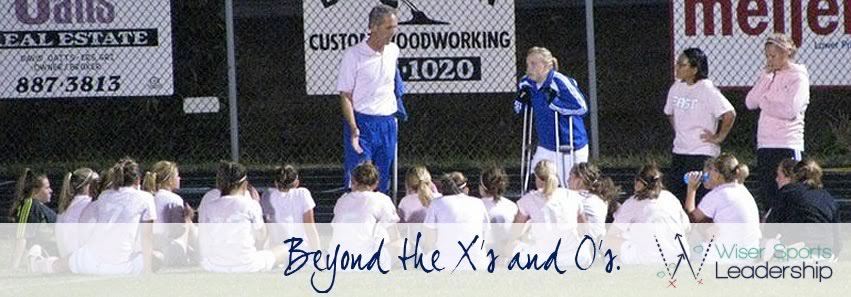
DeAngelo Wiser
If you’ve coached for a season or a career, you’ve had players that had all the physical attributes and skills necessary to be a top player but for some reason always fell short. Why is that?
As coaches, we often create a vision of what a certain player can accomplish or what they should become as a veteran. We see them carrying our team in tough moments, scoring the game winner, making a great save or defensive play and ultimately being the missing piece we’ve always needed to win a title.
Are we wrong to have those thoughts, or put that kind of pressure on an unproven player? What about the athlete? What is his or her self image as a player? Have you asked them?
At what point should you expect great things from these players? And what happens when they continually are just average? Are you tougher on them than any of your other players? Is it wrong to expect so much? How can you convince them of what you see, and what they can become?
Let’s explore some reasons athletes might not live up to expectations:
1. Our initial expectations may be overwhelming.
2. It’s our vision, not theirs.
3. Their perception of their ability is low.
4. They simply may not embrace the pressure it includes.
5. The potential cost in friendships and sacrifice is too high.
6. Their passion for the game is not the same as yours.
7. Their work ethic at this point is very low.
8. They would rather “fit in” than “stand out”.
9. Our constant pressure is driving them away.
So how can we build a positive experience and help each player reach his or her potential?
1. Meet with them, listen to their vision of what they see, and share yours.
2. Find out why they play the game, and what inspires them.
3. Set a time table with the player of check points for progress.
4. Give them permission to stand out, letting them know how it benefits their teammates.
5. Keep them on track with respect to their work ethic.
6. Be patient, this is a long-term project that may have setbacks.
7. Teach them how much humility, relentlessness and passion play a role in their journey.
8. Encourage, Encourage, Encourage.
9. Avoid buying in when they want to give up. They need you to be strong. They’ll thank you later.
Remember the players you’ve coached and the ones in which you saw so much potential. Did they reach it? Very often the answer is no. So many variables are not in your control, but that fact doesn’t help you resolve that feeling of disappointment when they fall short.
She was a truly gifted player. At practice, Grace could strike a ball better than any player we had ever had, and her knowledge of the game at that age was unheard of. She was an eighth grader, and a natural. As I shook hands with the private school’s coach before the Varsity game, he commented, “Wow! Our Varsity players who watched the JV game were amazed at your player’s ability. They were asking why she wasn’t playing Varsity, and I reminded them that she was probably only an eighth grader.” He was right, and yes, we were all impressed. I could hardly wait until next year when Grace would be in high school and could move up to Varsity.
Later in the year, we were runners-up to a perennial private school power in a very prestigious JV tournament. We thought it was a glimpse of our future. But, after that, things just fell apart for her outside of the game. Her career was not to be.
As coaches our focus can be narrow with only thoughts of the game and our team, when in reality players have other challenges to face every day. Our vision of them must always include other aspects of their life, and how we can help when needed.
Recognizing their potential is the easy part. Guiding them within and outside the game to reach it is the challenge.
Keep inspiring and I wish you and your team the best!
